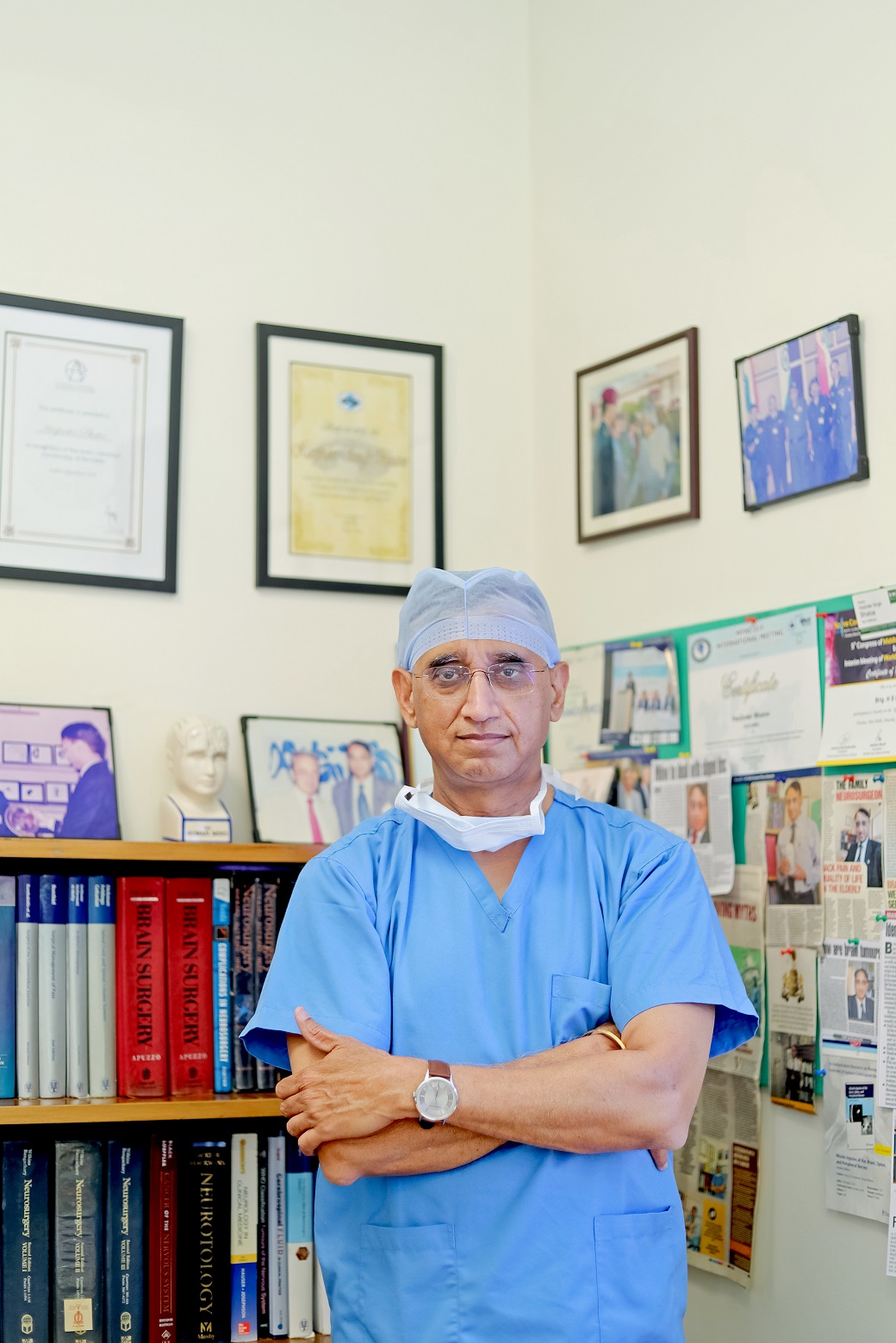Every field of medicine has its own challenges and hurdles, but in Neurosurgery, the doctors have a byword, which says, ‘expect the unexpected’. Talking about his journey which pans across more than three decades, Dr. Harjinder Singh Bhatoe shares with Urban Mélange how he decided to become a neurosurgeon and more.
When did you develop interest in Neurosurgery and why did you choose this as your profession?
The years spent in medical college are the formative years when, to paraphrase Lord Byron, the brain is wax to receive and marble to retain. My formative years were in the prestigious Armed Forces Medical College (AFMC), Pune, where the Surgical faculty members and professors were giants in their fields. I became inclined towards surgery, and in due course, specialized in Surgery in 1986. While undergoing training in Surgery, I was strongly influenced by the army neurosurgeons who became my role models, and that played a major role in my decision to choose Neurosurgery as my field of work.
Tell us about a typical day in your life at the hospital.
There is never a ‘typical’ day in Neurosurgery. Trying to imagine or describe a typical day would amount to straitjacketing. Right from my residency days, the byword in neurosurgery is ‘expect the unexpected’, followed in rapid succession by ‘carpe diem’, or seize the day. The neurological evaluation may take up to thirty minutes, and multiple sessions and it gets abridged with experience. Analysis of the imaging studies (CT, MRI, etc.) in the context of a given patient may be time consuming yet may need a fast decision making. To operate or not, would be the question.
Surgery on the brain or on the spine is an enriching experience, when it dawns on the surgeon that what we are seeing, or touching is the essence of the patient himself/herself. Much as a religious place of worship gives physicality to our idea of God, brain too physically is seat of the abstract, that is the emotions, the actions, the learning, the personality, relationships and so on. Neurosurgery is indeed spirituality in action.
Which are the surgeries that you have done the most?
A specialty like Neurosurgery too is acquiring layers and gradually we are watching neurosurgeons who operate only on some particular aspect of neurosurgical problems. Nevertheless, I still operate on an array of neurosurgical problems of the brain and the spine. Tumors constitute majority of the brain problems while degenerative diseases of the spine form the single largest group that requires neurosurgical attention.
Subscribe to read the full article:

